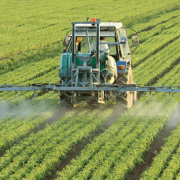AVA-ASAJA denounces the passivity of the EU in the face of the proliferation of South African citrus fruits with black spots
The Valencian Association of Farmers (AVA-ASAJA) has denounced that the detection on the European borders of South African citrus fruits affected by the dangerous disease of the black spot (Citrus Black Spot) has multiplied sixfold during the 2017 campaign, reaching a total of 24, before the passivity of the European Union. In view of these latest official data, the Valencian Association of Farmers (AVA-ASAJA) has accused Brussels of maintaining a position of clear complicity with South Africa and of seriously undermining the interests of the entire European citrus industry.
As stated in a statement AVA-ASAJA, the sector has been warning for many years of the serious risk posed to EU citrus fruit by the possibility of introducing this new quarantine disease into Europe and, so far, the only response from the Community authorities have been a succession of delaying maneuvers to avoid the problem that culminated, in addition, with the signing of a trade agreement with South Africa to favor the importation of citrus fruits.
The president of AVA-ASAJA, Cristóbal Aguado, affirms that “the attitude of the South African exporters and of the European Commission is simply unacceptable and constitutes a mockery and a full-fledged joke. Brussels not only shows complacency with the excesses of South Africa in terms of pest control, but exhibits an intolerable connivance by signing an agreement that rewards South Africa, the country that leads the ranking of interceptions of black spot with two thirds of the 36 registered, but apparently the South Africans have carte blanche“.
AVA-ASAJA recalls that the EU itself has systematically failed to comply with the measure by which it undertook to stop South Africa’s imports if it exceeded five detections
The situation has reached such an extreme that COPA-COGECA itself -the entity that encompasses agrarian organizations, including ASAJA, and European cooperatives- has taken action on the matter. The general secretary of the association, Pekka Pesonen, will send a letter to the Commissioner of Health and Food Safety, Vytenis Andriukaitis, in which he will denounce the sharp increase in the number of detections of black spot and remind him that, to a large extent, This manifest deterioration of phytosanitary security is motivated by the debatable decisions adopted by the Commission in 2016 and by which, instead of tightening the inspection conditions, it chose to allow imported citrus fruit to enter Europe through the so-called canal de the industry and without the need for a cold treatment, which made the controls on pests and diseases more lax.
The general secretary of COPA-COGECA will demand in his letter to the European Commission to annul those measures and take back the legislation that was previously in force in order to try to redirect a situation that has gotten out of hand. Cristóbal Aguado points out that “from AVA-ASAJA we add, of course, to the request made by COPA-COGECA and we also demand a radical change of community policies in such a sensitive matter because its obligation, as servants of the interests of its managed, is to ensure that South Africa is able to ensure complete phytosanitary safety of its shipments of citrus“.
AVA-ASAJA asks the Spanish political parties in the European Parliament to be involved in the defense of the sector to stop a dangerous and unacceptable situation
Source: AVA-ASAJA
YOU MIGHT ALSO LIKE:
➡️LA UNIÓ denounces the proliferation of South African oranges on the shelves, despite not being exported due to the presence of pests















